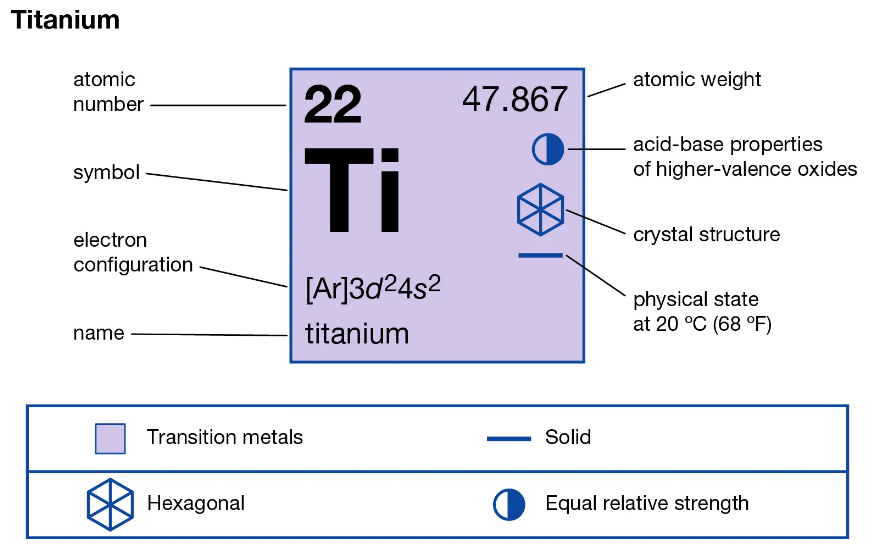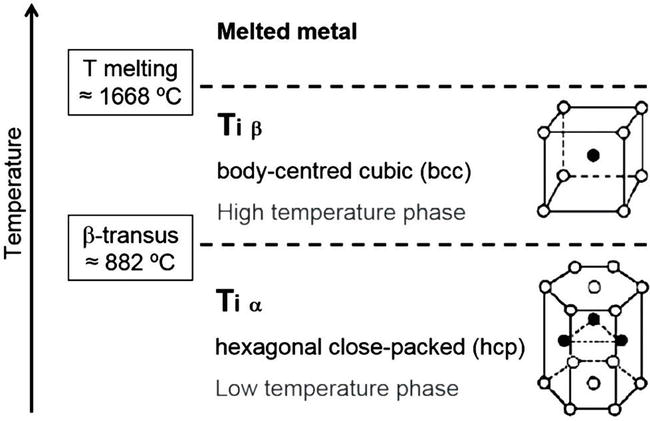Grade 5 titanium, also known as Ti-6Al-4V or simply Gr5 titanium, is the most popular and widely used titanium alloy in the world. It’s truly special because it perfectly balances amazing strength, light weight, and excellent resistance to rust and wear. This makes it a top choice for many advanced industries, from airplanes and spacecraft to medical devices and high-end watches.
The unique grade 5 titanium properties are what truly set it apart. It’s an alpha-beta alloy, which means its special characteristics come from mixing pure titanium with 6% aluminum and 4% vanadium. These added elements significantly boost its strength and make it incredibly tough and durable.
Here are some of its key features:
Exceptional Strength-to-Weight Ratio: Imagine a material that’s as strong as steel but nearly half its weight! That’s Grade 5 titanium. This makes it perfect for applications where every gram matters, like in aircraft or sports gear.
High Corrosion Resistance: This alloy can stand up to really harsh conditions, including saltwater, chlorine, and many strong chemicals, without rusting or breaking down. This ensures a long lifespan in tough environments.
Good Heat Resistance: Grade 5 titanium keeps its strength and shape even at high temperatures, which is vital for parts used in engines or other hot areas.
Biocompatibility: It’s completely safe and doesn’t react negatively with the human body. This crucial property makes it ideal for medical implants.
Moderate Machinability: While it’s tough to work with and needs special tools and techniques, skilled manufacturers can shape it into complex parts.
Weldability: With proper care and inert gas shielding, Grade 5 titanium can be welded, allowing for the creation of larger, more complex structures.

When we talk about grade 5 titanium strength, we’re referring to its impressive ability to resist breaking under stress. It boasts a tensile strength of about 1000 MPa (which is roughly 145,000 pounds per square inch!). This is significantly higher than pure titanium and many other common metals, yet it remains surprisingly light. This incredible combination of grade 5 titanium strength and low weight is why engineers value it so highly.
Beyond just raw strength, it also offers excellent fatigue resistance. This means it can handle repeated stress and strain over a long time without developing cracks or failing. This is super important for parts that experience constant movement or vibration, such as in aircraft wings, engine components, or even high-performance bicycle frames.

Grade 5 titanium uses are incredibly varied and touch many aspects of modern life. Its unique properties make it suitable for a wide range of demanding applications. Here are some of the main areas where you’ll find titanium grade 5 applications:
In aerospace, titanium alloy grade 5 is a cornerstone material. It’s used for crucial parts where reliability and weight savings are paramount. This includes:
Aircraft Frames and Structures: Providing strength without adding excessive weight.
Engine Components: Such as turbine blades and compressor discs, which operate under extreme heat and stress.
Landing Gear: Where high strength and impact resistance are essential.
Fasteners: Bolts, nuts, and rivets that hold aircraft together.
Thanks to its outstanding biocompatibility, Gr5 titanium is widely used inside the human body. It’s the material of choice for:
Orthopedic Implants: Such as hip and knee replacements, spinal fusion devices, and bone plates.
Dental Implants: Providing a strong and safe foundation for artificial teeth.
Prosthetics: Artificial limbs and joints that need to be durable and lightweight.
Surgical Instruments: Tools that must be strong, corrosion-resistant, and safe for repeated sterilization and contact with body tissues.
High-performance cars, luxury vehicles, and racing machines often feature grade 5 titanium. It’s used in components where reducing weight and increasing strength are key to achieving top performance and fuel efficiency. Examples include:
Exhaust Systems: Lighter and more durable than steel alternatives.
Suspension Parts: Improving handling and reducing unsprung weight.
Engine Components: Connecting rods and valves for enhanced performance.
Brake Components: For better heat dissipation and reduced weight.
Its superior corrosion resistance makes grade 5 titanium ideal for environments exposed to harsh chemicals or saltwater. This includes:
Submersible Components: For underwater vehicles and equipment.
Heat Exchangers and Piping: In chemical plants where corrosive fluids are handled.
Offshore Oil and Gas Equipment: Resisting the corrosive effects of seawater.
Beyond heavy industry, you’ll find grade 5 titanium uses in everyday items that demand quality, durability, and a premium feel:
High-End Sports Equipment: Including bicycle frames, golf club heads, tennis rackets, and protective gear, where its strength-to-weight ratio offers a competitive edge.
Watches: The grade 5 titanium watch is highly sought after for its light weight, comfort on the wrist, hypoallergenic properties, and scratch resistance, making it both stylish and incredibly tough.
Eyeglass Frames: Lightweight, durable, and hypoallergenic.
Camping Gear: Such as ultralight cookware and tools.
When you’re looking for titanium grade 5, it’s super important to find reliable titanium grade 5 suppliers. The quality of the alloy can vary, and this directly impacts the performance and safety of your project. A good supplier should offer:
Certified Materials: Ensuring the alloy meets strict industry standards (like ASTM B348 for bars or ASTM B265 for sheets) and comes with proper documentation.
Technical Support: Knowledgeable staff who can help you choose the right form (sheets, bars, tubes, wire, forgings) and specifications for your specific needs.
Timely Delivery: To keep your production schedules on track.
Reputation and Experience: Look for suppliers with a proven track record and positive customer reviews.
While there are many different titanium grades, Grade 5 titanium often stands out as the most versatile and widely used. Let’s compare it briefly to another common grade:
| Feature | Grade 2 Titanium (Commercially Pure) | Grade 5 Titanium (Ti-6Al-4V) |
|---|---|---|
| Composition | Pure titanium (min 99.2%) | Titanium with 6% Aluminum, 4% Vanadium |
| Strength | Lower strength, more ductile | Much higher strength, excellent fatigue resistance |
| Formability | Excellent, easy to bend and shape | Good, but requires more specialized tools and techniques |
| Corrosion Res. | Excellent | Excellent, especially in harsh chemical and marine environments |
| Heat Res. | Good | Better, maintains strength at higher temperatures |
| Applications | Chemical processing, marine, general | Aerospace, medical implants, automotive, sports, high-performance goods |
Titanium alloy grade 5 offers a superior balance of strength, corrosion resistance, and heat resistance due to its aluminum and vanadium content. This makes it the preferred choice for more challenging conditions where high performance and reliability are absolutely essential.
Grade 5 titanium continues to be a crucial and irreplaceable material across countless industries. Its amazing strength, light weight, and outstanding resistance to corrosion and heat ensure it will play an even bigger part in future innovations. As technology keeps advancing and new engineering challenges arise, the demand for this incredibly versatile alloy will only grow, opening doors to exciting new breakthroughs and applications that we can only begin to imagine.